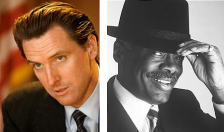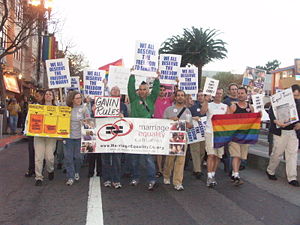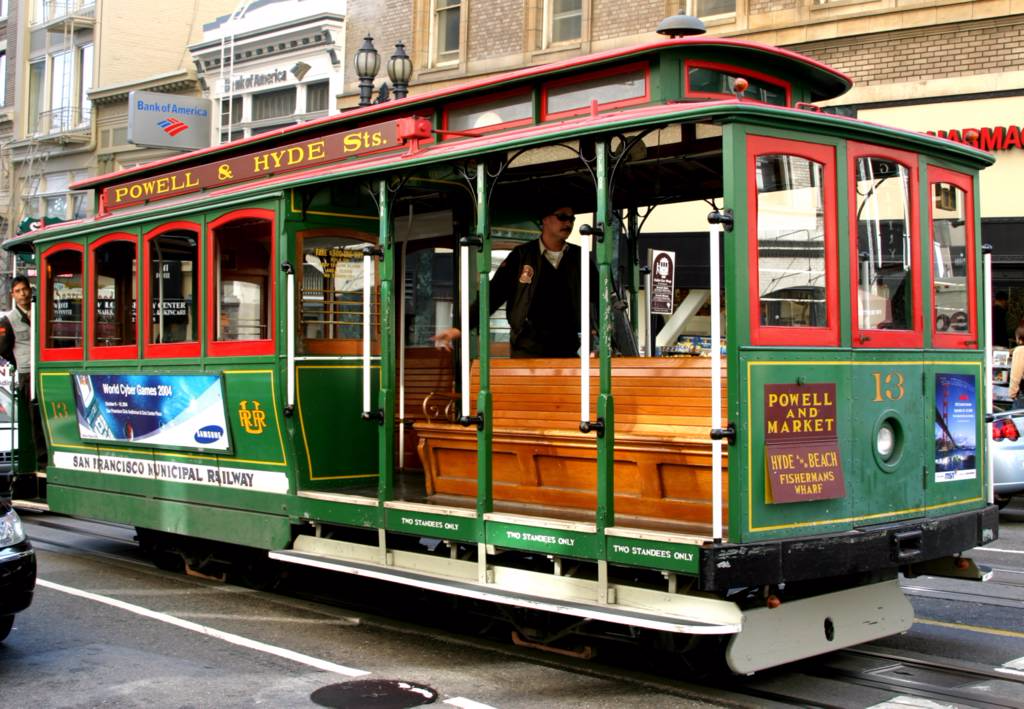San Francisco Bay Guardian, August 1, 2001
SFO COVER-UP
How Willie Brown squelched an investigation into racism at SFO.
By Savannah Blackwell
Mayor Willie Brown personally directed the Human Rights Commission staff to squelch an investigation into charges that a major airport contractor was breaking the city’s law aimed at helping minority- and women-owned businesses, a senior HRC contract compliance officer has testified under oath.
Compliance officer Kevin Williams testified in hearings before an arbitrator May 21-23 that the mayor forced the agency to shut down an investigation into Hensel Phelps Construction, one of the main companies that worked on San Francisco International Airport’s expansion project.
The Mayor’s Office pressured then-HRC director Marivic Bamba to overturn Williams’s decision that the big firm was trying to use a black subcontractor as a “front.” Comer Marshall, former chair of the HRC, testified in the same proceeding that the Mayor’s Office pressured him to resign as chair because of his insistence that the agency pursue the investigation into Hensel Phelps.
Marshall and Williams testified as part of an arbitration hearing on a complaint by Willie Ratcliff, the African American owner of Liberty Builders Inc., against Hensel Phelps. Ratcliff alleges that Hensel Phelps employees harassed Liberty’s employees and made it difficult for Liberty to complete work on a $3 million airport subcontract.
In the fall of 1998 Hensel Phelps admitted that one of its managers hung a noose in a construction trailer – a move some African American contractors saw as an attempt to intimidate them.
Ratcliff filed suit against the big construction outfit in March 2001. His suit alleges that the noose was hung as “a symbol of racism and hatred” directed at Liberty’s African American crew. The suit seeks $4 million in damages.
The Federal Bureau of Investigation is looking into the Hensel Phelps contracting matter, sources who have been interviewed by the FBI told us.
Some African American contractors say Brown’s favorable treatment of Hensel Phelps reflects the mayor’s failure to support small, locally owned minority businesses. “[Brown] is selling out to the big businesses,” Ratcliff told the Bay Guardian. “That’s where he gets his soft money and power, and if it means running over a few black contractors and people of color and women, then so be it.”
“The mayor has everything in the whole world to do with this problem,” said La Vaughan Moore, whose women-owned trucking company, Double B and L, worked as a subcontractor forHensel Phelps. Moore said she also had problems with the company.
Hensel Phelps and its associates contributed at least $3,000 to Brown’s 1999 mayoral reelection campaign, campaign finance reports show.
A 911 call
Hensel Phelps hired Liberty in 1997 as a subcontractor on a $67 million bid to build a new loading area at the airport as part of the Colorado-based company’s effort to satisfy city requirements that a certain percentage of all public contracts go to minority-owned businesses. Without a minority-owned subcontractor, Hensel Phelps could not have gotten the bid, Williams testified.
But in October 1997, Ratcliff complained that Hensel Phelps was not following through on its contract with him and had created a hostile work environment aimed at driving the smallBayview firm off of the job site.
Williams, who is now on leave from the HRC, investigated that complaint, and after a nine-month inquiry he concluded that Ratcliff’s allegations were valid.
Other HRC officials, who asked not to be named because they fear retribution, confirmed that conclusion in interviews with the Bay Guardian.
On July 31, 1998, Williams directed airport officials to stop payment to Hensel Phelps. He convened a “show cause hearing” Aug. 18, a procedure designed to give the contractor found to be violating the city’s affirmative action law a chance to show why the findings are wrong.
But on the second day of the hearing, Williams testified, he was stopped cold by a call from Bamba.
Williams testified that the message “911” followed by the number of HRC’s main office suddenly appeared on his pager. He left the meeting, walked to a phone in the hallway, and spoke withBamba.
“She told me to stop the proceedings,” Williams said, according to a transcript of the arbitration hearing. She did not give any reason for her command at the time, he added.
A day or two later in a private meeting with Bamba, Williams found out who had ordered the hearing stopped.
“She told me in the meeting that she received a telephone call from the mayor and that the mayor told her to stop the show-cause hearing and that she should have been the one conducting it…. She told me that she tried to explain on my behalf that a show-cause hearing is essentially a compliance tool,” Williams testified. “He [the mayor] didn’t want to hear it.”
Williams also testified that Bamba had authorized his decision to order payment stopped to Hensel Phelps.
Williams testified that in his 16 to 17 years working as a compliance officer for the HRC, he knew of no other San Francisco mayor intervening in a compliance case. Other officers at the HRC confirmed to the Bay Guardian that no previous mayor had interfered in the HRC’s activities to the extent that Brown has, as did Marshall.
In November 1998 the HRC, under direction from the mayor, reversed Williams’s findings without further investigation, according to Williams’s testimony and interviews with HRC sources. Ratcliff appealed that decision, and it’s taken more than two years for that appeal to get a hearing.
Ultimately, after Ratcliff hired former supervisor Angela Alioto to sue Hensel Phelps, the HRC agreed to hold an arbitration hearing into the appeal. That hearing was the source of Williams’s testimony.
Eight days after Bamba stopped the show-cause hearing, a noose was discovered hanging in a Hensel Phelps trailer near the Liberty work site and brought to Williams’s attention. HenselPhelps foreman Greg Stines admitted at an Oct. 8, 1998, hearing before the Board of Supervisors that the noose was hanging over his desk, but he said that is was meant as a joke, not as a symbol of racial hatred against blacks. Liberty superintendent Delton Sanders, who took pictures of the noose, wrote in a report to Williams that Stines had told him that the noose “was there for [him] to put his neck into.”
In his Nov. 20, 1998, report Sanders wrote, “This degrading act of a hangman’s noose by HPCC in their job site trailer was by far the worst blatant display of racial discrimination I have ever witnessed in all the forty years of my construction career.”
The hanging of the noose kicked off the FBI’s investigation, which has since broadened to include contracting abuse at the San Francisco Housing Authority and other city agencies.
The HRC and the Mayor’s Office arranged for Hensel Phelps to donate $500,000 to minority programs and open an investment account in a Hunters Point bank to prove that the company was making a good-faith effort to work with minorities. Hensel Phelps representatives said they reprimanded the workers involved in the noose incident.
According to Williams, Marshall, and other sources within the HRC, no previous complaint of that nature had ever been resolved in such a manner.
Williams testified that the Mayor’s Office insisted that the noose incident be treated as a separate issue and not considered in the context of Ratcliff’s complaint. Some time in late October 1998, Williams testified, Jonnie Robinson, a special assistant to the mayor, came over to HRC headquarters and told Williams “that the matter of the hangman’s noose and the issue of discrimination are to be separate findings.”
“She just simply said that is what the mayor wants,” Williams testified.
That diluted the overall case against Hensel Phelps and allowed Bamba to tell the supervisors and the HRC at a joint hearing Oct. 29 that Hensel Phelps was still in compliance with the city’s minority contracting laws. Speakers at the hearing were barred from bringing up the Liberty complaint.
“Putting the complaints together would have tied [the issue] up in a package,” one former HRC officer told us.
Williams also testified that Robinson called him several times in October and November 1998, ordering him to “unfind his findings.” She said, “I want this matter closed. The mayor wants this matter closed. I expect for this to be done, and I am going to put another telephone call to Marivic Bamba to see to it that it is closed.”
Bamba resigned as HRC director in March 2000, following almost of year of press reports on the FBI investigation into the HRC’s contracting practices as well as the airport’s expansion project. She is now a member of the city’s Small Business Commission.
She failed to show up for her scheduled testimony in the arbitration hearing on July 23, according to Alioto.
Hensel Phelps attorney Lindbergh Porter told us, “The company’s position is that we did comply with our contractual obligations. We met our obligation under the portion of the contract pertaining to retention of minority business enterprises.”
Brown spokesperson Ron Vinson said the mayor had no comment on the case.
Firing the chair
According to documents obtained from the HRC, Ratcliff’s lawsuit, and transcripts of Ratcliff’s arbitration-hearing testimony, tensions between Liberty and Hensel Phelps employees started mounting shortly after Liberty started work at the airport in spring 1997. In October, Ratcliff lodged his first official complaint that his outfit was being treated differently than the white-owned subcontractors working on the project.
That same month Hensel Phelps tried to fire Liberty, charging that the small company was performing badly and running up costs. But Williams insisted that Liberty stay on the job and requested an independent audit. He instructed the other HRC officers working at the airport to continue the investigation.
On June 29, 1998, the airport issued an audit that cleared Hensel Phelps and supported the big firm’s allegations that Liberty was doing a shoddy job. Williams testified that he wasn’t satisfied with the document: it didn’t address whether Hensel Phelps was violating the law by deliberately placing hurdles in front of the minority-owned firm.
At the time, Liberty had been complaining to HRC officials at the airport that they were being forced to work under dangerous conditions and without equipment that Hensel Phelps was supposed to provide. Ratcliff testified that he could not get access to basic job needs such as electricity, phone service, and a lift – which forced Liberty workers to hoist heavy materials up several floors with a rope. “We find compelling proof from eyewitness statements, which corroborates Liberty Builders’ complaint of uneven and discriminatory harassment to the extent of being unable to effectively perform,” Williams concluded in his findings.
Hensel Phelps also argued that Williams lacked authority to stop payment to the contractor. Only Bamba, as the HRC director, had that power, the company claimed. The City Attorney’s Office, apparently, has taken Hensel Phelps’s side on that issue: deputy city attorney Katharine Hobin, in her cross-examination of Williams at the May arbitration hearing, asked whetherBamba told Williams when she ordered the show-cause hearing stopped that he did not have the authority to lead it. Williams said that wasn’t true.
Other HRC sources interviewed by the Bay Guardian said that Williams should probably have made sure Bamba signed off on the findings. But, one person said, “even if [Williams] screwed up, Bamba still had the authority to bring in the city attorneys to do cleanup. Instead, she just signed off and let the whole thing go into the toilet, and Hensel Phelps rode into the sunset.”
On Sept. 24, 1998, Bamba met privately with representatives from Hensel Phelps, according to a Sept. 25 letter from Hensel Phelps to Bamba obtained by the Bay Guardian under the city’s Sunshine Ordinance. In the letter, Hensel Phelps thanks Bamba for the meeting and for “confirming that Mr. Williams had no authority to issue the July 30, 1998 letter to the San Francisco Airport Commission purporting that the Airport withhold progress payments due to Hensel Phelps.”
Williams testified that Bamba never even asked for the file on the investigation to be sent to the main office from the airport.
On Nov. 23, 1998, both Williams and Bamba signed off on closing the investigation into Liberty’s charges against Hensel Phelps. “No credible evidence exists to substantiate … the charge of discriminatory treatment,” the determination says. On Dec. 11, 1998, Williams and Bamba both signed off on closing the investigation into the hanging of the noose. Williams testified that he insisted Ratcliff be informed of his right to appeal and that Bamba refused.
Ratcliff wrote a letter to Marshall on Nov. 24 appealing the decision.
Marshall then took the matter to the mayor. He and two other commissioners, Martha Knutzen and Steve Herman, went to the mayor Dec. 10, 1998, to complain that the matter should have been heard by the commissioners, Marshall testified.
“My understanding is that the director is supposed to bring these concerns to the commission and we should have the final say rather than being a rubber stamp; that was my concern,” Marshall told us.
Instead, the mayor informed the commissioners that they were interfering with the running of the agency, Marshall said.
Marshall told us that he decided to meet with representatives of Hensel Phelps to see if the company understood the seriousness of the noose issue, but shortly after the meeting the mayor called him directly and told him to back off.
“I got a call from Brown saying, ‘I heard you had a meeting with Hensel Phelps. That’s interfering with the director,’” Marshall told us. “And I said, no, it’s not … that [the commissioners] just wanted to get some insight into what was going on … It was clear we didn’t agree and then [the phone call] got cut off.”
In March 1999, Marshall ran into Brown on a Saturday, and the mayor curtly informed him that he had replaced him as chair with Harry Low. “He had my resignation the next Monday,” Marshall testified.
If the arbitrator agrees that Bamba abused her discretion in reversing the July 31, 1998, findings against Hensel Phelps, that decision would resurrect those findings and render the final determinations invalid. The matter would then go to the full commission.
“The Human Rights Commission exists to protect and promote equality. It does not exist to suffocate equality in a pillow of ‘nonprofit donations’ and corruption,” Alioto wrote in her brief to the arbitrator assigned to the case. “This entire situation is a travesty in the name of Human Rights and a very sad day in our City’s history.”







